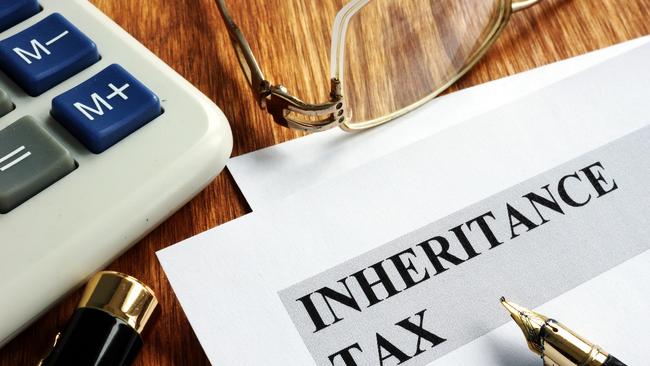Inheritance tax on superannuation can hurt, but can be beaten too
Talk of inheritance taxes has angered retirees and workers, but many don’t realise we effectively already have one.

There’s been a bit of public debate lately – and some public angst – about a potential inheritance tax for Australia.
It followed comments from incoming Productivity Commission boss Danielle Wood, who suggested a national conversation about more tax on inheritances, superannuation and capital gains.
Amid the anger and unwillingness by many to hand more money to governments that arguably don’t spend it wisely enough, one key issue seemed overlooked: Australia already has a death tax, just with a different name.
It’s the tax on superannuation death benefits, and it can potentially hit a huge chunk of the nation’s $3.5 trillion of super assets and 24 million super accounts when those fund members eventually die.
Super remains the retirement saving vehicle of choice for most Australians because of its low tax rate during the saving phase and zero tax rate for millions when it transforms into an account based pension.
But there is usually a 15 per cent tax to be paid when a super fund member dies and their money goes to a non-dependant such as an adult child. Spouses and kids under 18 get it tax-free.
When most people pass away they don’t have underage kids, so at some point the superannuation death benefits tax could rear its ugly head.
Only the taxable component of a person’s super is impacted, although that typically represents the majority of people’s nest eggs. Your super fund, super statement or online balance should tell you the size of your taxable and non-taxable components.

Looking at the numbers, it means a $500,000 inheritance received from a deceased person’s super fund could potentially be taxed at up to $75,000.
That’s one hell of a death tax, and threatens to hit more families in the future as the nation’s total super balance grows to more than $6 trillion over the decade ahead.
Before we all grab out pitchforks to protest about this seemingly sneaky inheritance tax, it’s worthwhile understanding that there are strategies to avoid it – although some may require financial advice. Here are four.
TIME YOUR DEATH
Very difficult to do, and it won’t work for those who die suddenly, but most people are able to withdraw their super tax-free after age 60.
If you do that before your die, the money can go into bank accounts or investments and become part of your estate that’s not subject to the death benefits tax.
GET IT OUT
This strategy also has no defence against sudden death, but seniors getting on in years can consider switching out their super money to their personal name.
These investments could then attract income tax and capital gains tax, although for many seniors it may be minimal because of generous concessions such as the seniors and pensioners tax offset.
RE-CONTRIBUTION STRATEGY
This is the most complex strategy, and it is often done with professional help from a financial planner.
It involves withdrawing money from your super then re-contributing it as a tax-free component, although there are contribution limits, age limits and conditions of release to navigate.
EARLY INHERITANCES
If you have enough assets to fund your lifestyle, and you are beyond the big-spending retirement years where travel and other experiences swallow cash, there may be an argument to take out your super tax free and share it with children, charities or wherever you want.
If you have nothing in your superannuation at the time of death, there is no super death benefits tax to pay.







To join the conversation, please log in. Don't have an account? Register
Join the conversation, you are commenting as Logout